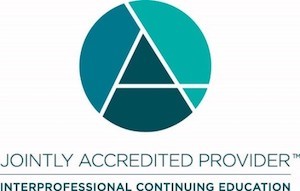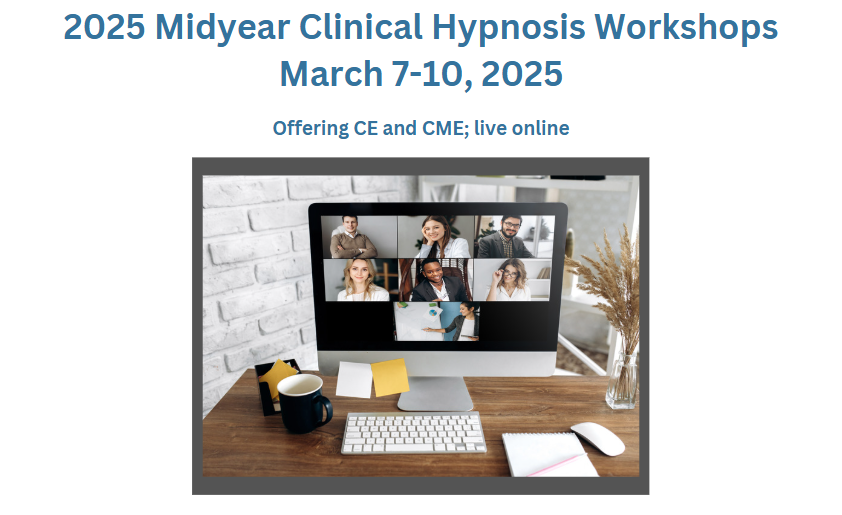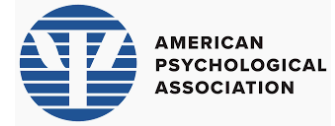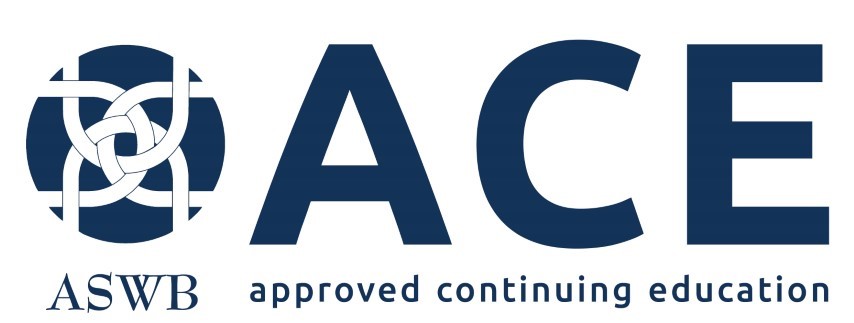|
Registration has closed. Updated Reminder for Registered Attendees All registered participants have now been sent Final Event Confirmation email. Contact our office if you have not received it. This final event confirmation contained: Please note all event times are in PT - Pacific Time. Get help converting time zones. Note on Daylight Savings Time Which Takes Effect on Sunday, March 9th Times are in Pacific Time - specifically Pacific Daylight Time, also known as PDT. Pacific Time, PDT and PST About the Midyear Workshops Co-sponsored by SCEH and Amedco LLC. About the Midyear WorkshopsSCEH Midyear Clinical Hypnosis Workshops includes Clinical Hypnosis Workshops at the Introductory, Intermediate and Advanced levels offering CE and CME. Workshops meet accepted Standards of Training in Clinical Hypnosis and count toward SCEH Hypnosis Certification Programs. Workshops are designed to empower attendees with evidence-based skills and training in the application of hypnosis for mental health, medicine, and general wellness, creating a positive effect on health worldwide. While research shows that hypnosis is effective in enhancing client/patient treatment outcomes, far too few health professionals can conduct hypnosis skillfully. Workshop attendees gain knowledge and competence, can put hypnosis to immediate use in their work, and are aided by a better understanding of the uses and limits of evidence-based hypnosis practice. Three levels of workshops are tailored to the needs of those who:
OverviewINTRODUCTORY Workshop
100M - Foundations of Clinical and Applied Hypnosis
• Friday and Saturday, March 7-8, 2025 --Two-day Introductory Workshop in Clinical Hypnosis
To be submitted for 12.5 CE/CME credits; counts toward SCEH Certification requirements
INTERMEDIATE Workshop
200M - Intermediate Workshop in Clinical Hypnosis
• Friday and Saturday, March 7-8, 2025 -- Two-day Intermediate Workshop in Clinical Hypnosis
To be submitted for 12.5 CE/CME credits; counts toward SCEH Certification requirements
ADVANCED Workshops
300M Series Workshops - see topics below
• Sunday, March 9 and Monday, March 10, 2025 -- Multiple workshops; attend one or all Multiple workshops on varied topics; each workshop to be submitted for CE/CME; counts toward SCEH Certification requirements
Theme for the day's workshops:
-- Sunday, March 9 - Neurological and Functional Neurological Disorders
-- Monday March 10 - Meditation, Mindfulness, and Hypnosis
Who May Attend - Workshop EligibilitySCEH workshops are designed for physicians, psychologists, members of health care teams and other groups eligible for membership who address the physical and mental health needs of patients through clinical practice and research. While you do not need to be a member to attend, you do need to satisfy SCEH Member Eligibility Requirements. If you require special accommodations to attend, please contact the SCEH office as soon as possible and no later than two weeks prior to the start of the event via email at [email protected].
Friday and Saturday – Introductory or Intermediate Workshops (Concurrent Sessions) 100M - Introductory Workshop: Foundations of Clinical and Applied HypnosisCo-Chairs and Faculty Leads: Eric Willmarth, PhD, and Chandler Broadbent, PsyD Additional Faculty: Casey Applegate-Aguilar, PhD, LPCC; Louis Damis, PhD, ABPH, FASCH; Cassondra Jackson, MA, Nicholas Olendzki, PsyD, and Donald Moss, PhD Introductory Schedule March 7, 2025 - Day one of two Workshop 8:00 AM - 12:00 PM PT (includes 30-minute break) March 8, 2025 - Day two of two Workshop 8:00 AM - 12:00 PM PT Total Workshop Training Hours: 12.5 Hypnosis is a powerful tool that allows clinicians to assist patients or clients in making meaningful changes in their physical and mental health. Hypnosis is a fruitful area of research that allows for the study of the mind and human experience, as well as the nature of hypnosis itself. In this workshop, participants will be provided with foundations in hypnosis to begin using it within their scope of practice or research. The workshop will include large and small group experiential sessions, in addition to didactic presentations and discussion. Faculty will present the historical context and neurobiological basis of hypnosis, discuss ethical use and practice integration, and demonstrate hypnotic techniques and phenomena. Participants will leave with a fundamental understanding of hypnosis and how to facilitate it. Participants will receive resources to help them use hypnosis in research and practice. Suggestions will be provided for further training and education in hypnosis, including practice and mentorship opportunities for SCEH members. Updated View Intro Agenda and Learning Objectives.
200M - Intermediate Workshop: Intermediate Training in Clinical HypnosisCo-Chairs and Faculty Leads: Louis Damis, PhD, ABPH, FASCH and Akira Otani, EdD, ABPH Intermediate Schedule March 7, 2025 - Day one of two Workshop 8:00 AM - 12:00 PM PT (includes 30-minute break) March 8, 2025 - Day two of two Workshop 8:00 AM - 12:00 PM PT Total Workshop Training Hours: 12.5 Intermediate Skills Workshop, Refining Skills & Treatment Applications, is offered as a cohort to assist attendees in preparing for certification in hypnosis and clinical practice. The workshop features hypnotic techniques for advancing induction and deepening skills and therapeutic applications for modification of implicit memory, ego strengthening, insight, anxiety, habit disorders, and pain management. Learning Objectives:
Sunday to Monday – Advanced WorkshopsAttendees sign up and attend each workshop separately. Total CE/CME will vary. Advanced Workshops Schedule Refer below to the schedule for each individual workshop. Themes and potential attendee CE/CME vary by day.
Sunday, March 9 -- Neurological and Functional Neurological Disorders 301M - Functional (Dissociative) Seizure DisorderBarbara S. McCann, PhD 8:00 - 10:00 AM PT, 2.0 CE/CME – NO BREAKS Functional (Dissociative) Seizure Disorder (FSD), referred to in the recent past as psychogenic nonepileptic seizure disorder, pseudoseizures, or conversion disorder, is characterized by paroxysmal events that resemble epileptic seizures without accompanying EEG changes seen in epilepsy. Between 20-30% of patients referred to epilepsy centers receive the diagnosis, and approximately 70% of adults with FSD are women. FSD impacts social, occupational, academic, and role functioning, and impairs quality of life. This workshop reviews fundamentals of FSD, followed by examples of uses of hypnosis in the treatment of the disorder. Emphasis will be placed on building a collaborative relationship with patients. The ethically dubious use of hypnosis and suggestion in the diagnosis of FSD will be addressed. Workshop participants will be equipped with tools and resources helpful in furthering their ability to treat FSD and connect with epileptologists to support carefor this oft-neglected population. Learning Objectives:
10:00 - 10:15 AM PT - Break (15 minutes)
302M - Palliative Care, ALS, and Palliative Symptomatic Hypnotic ApproachesJohn E. Franklin, M.D., HMDC, FAAHPM 10:15 AM – 12:15 PM PT, 2.0 CE/CME – NO BREAKS Palliative care is a subspecialty of medicine, focusing on the care of patients with serious, chronic, life-limiting, life-threatening, and/or terminal illnesses. Palliative care functions as an additional layer of support for the illness journey. The goals of palliative care are to increase comfort, reduce suffering, be a source of support, provide patients with medical information in an understandable way, help patients determine their goals of medical care, and help patients make complex, difficult medical decisions. Palliative care is appropriate at any stage of a serious illness and is best initiated at the time of diagnosis. Palliative care must be differentiated from hospice care as the two are often conflated. Amyotrophic lateral sclerosis (ALS) is a rare, chronic, degenerative, incurable, and ultimately fatal neurologic illness. The symptom burden in ALS is significant, including fatigue, pain, drooling, muscle weakness and spasm, shortness of breath, swallowing difficulties, pseudo-bulbar affect, cognitive impairment, and immense psychosocial distress. Palliative care plays a critical function in the care of ALS patients. Palliative hypnosis can provide significant, nonpharmacologic benefits for the treatment of many of the symptoms of ALS.This presentation will discuss palliative care in detail, followed by a discussion of ALS, including the symptom burden, and finally a review of the benefits of palliative hypnosis with ALS patients. Learning Objectives:
12:15 – 1:00 PM PT – Meal Break (45 minutes)
303M - Hypnosis for Functional Neurological DisordersRochelle Frank, MD, FAAN, Clinical Professor Department of Neurology, University of California Davis School of Medicine 1 :00 - 3:00 PM PT, 2.0 CE/CME – NO BREAKS This presentation will review basic information about Functional Neurological Disorders (FND), recent updates regarding pathophysiology and treatment, evidence for treatment of FND with hypnosis and specific hypnotic approaches to FND. Learning Objectives:
3:00 - 3:15 PM PT – Break (15 minutes)
304M - Hypnotic Approaches for MigraineElizabeth G. Walsh, PhD, Assistant Clinical Professor of Clinical Physical Medicine and Rehabilitation, Vanderbilt University Medical Center; and Lindsey C. McKernan, PhD, MPH, Associate Professor, Department of Psychiatry and Behavioral Sciences, and Associate Professor in Physical Medicine and Rehabilitation, Vanderbilt University Medical Center. 3:15 - 5:15 PM PT, 2.0 CE/CME – NO BREAKS This workshop will provide an overview of the use of clinical hypnosis for migraines. Migraines, which are defined as episodic headaches accompanied by other features such as sensitivity to light or sound, are one of the most common chronic health conditions. Migraine affects 1 of 7 people worldwide and is about 3 times as common among women as men. Migraines are frequently severe, resulting in significant impacts on quality of life, employment, education, and social roles and activities. There are several effective pharmacological and interventional treatments for migraine; however, complementary approaches may be utilized for multiple reasons, including when medications or procedures are contraindicated, not tolerated, or incompletely treat symptoms. Hypnosis is effective in reducing the short and long-term effects of headache activity in chronic migraine sufferers. Hypnosis for migraine may have various targets including modulating pain experiences through shifting physiological processes, altering pain perception, or addressing emotional responses to episodes. This workshop will provide an overview of the prevalence, impact, characteristics, and neurophysiology of migraines, and a summary of research findings on the use of hypnosis for migraine. We will provide suggestions for when to include hypnosis as an adjunctive treatment for migraine, how to assess for information relevant to individualizing hypnosis for migraine, and design suggestions for treatment. We will emphasize the key role of psychoeducation regarding pain processes and migraine phases, and the importance of helping patients recognize triggers and notice early signs of a migraine attack for skills application. We will then facilitate group brainstorming of hypnotic suggestions that consider the known pathophysiology of migraines and patients’ unique experiences of their symptoms and symptom relief. Finally, participants will break out into small groups and practice these suggestions. Learning Objectives:
5:15 PM – Advanced Workshops end for the day. Monday, March 10 - Mindfulness, Meditation and Hypnosis 305M - Mindful Hypnosis in Clinical PracticeGary R. Elkins, PhD, ABPP, ABPH 8:30 – 10:30 AM PT, 2.0 CE/CME – NO BREAKS Mindful Hypnosis integrates the theory of mindfulness within the practice of clinical hypnosis. Research has shown efficacy of mindful hypnotherapy for stress, anxiety, depression, wellness, and increasing mindfulness outcomes. In this workshop attendees will learn the basics of mindful hypnosis, learn existing research for evidence-base practice, and become familiar with how to effectively integrate mindful hypnosis into clinical practice. The workshop will include lecture, case examples, demonstration, and role-play practice. Also, emerging future directions and practical applications will be discussed. Learning Objectives:
10:30 -10:45 AM PT - Break (15 minutes)
306M - The Neuroscience of Hypnosis and Meditation: Neuroplasticity and Pain ManagementLouis F. Damis, PhD, ABPP, FASCH 10:45 - 12:45 PM PT, 2.0 CE/CME – NO BREAKS Clinical hypnosis and mindfulness meditation have become established treatments for a wide range of medical and psychological disorders. In this timely advanced workshop, the participants will acquire the latest neuroscientific information underlying hypnosis and meditation. The neurophysiological mechanisms of pain processing and the mechanisms by which hypnosis and meditation modulate pain will also be delineated. Learning Objectives:
12:45 - 1:45 PM PT -- Meal Break (60 minutes)
307M - Mindfulness, Meditation, and Hypnotic PracticeAkira Otani, EdD, ABPH 1:45 - 3:45 PM PT, 2.0 CE/CME – NO BREAKS In this workshop, participants will learn the historical background of contemporary mindfulness in the context of Buddhist meditation. The three popular forms of Buddhist meditation, vipassana (open monitor), samatha (focused attention), and metta (loving-kindness), provide rich material for clinical hypnosis practice. The participants will learn and practice the Touch-and-Return mindfulness method, which may be utilized for trance induction. The workshop also introduces the eight stages of mental absorption, i.e., rupa and arupa jhanas, as described in the Buddhist texts. This topic has received little attention from hypnosis researchers and practitioners to date. We will discuss their practical implications for hypnosis. No prior experience or knowledge in mindfulness or meditation is required to attend this workshop. Learning Objectives:
3:45 PM PT – Advanced Workshops end
SCEH Policies for Attendees & PresentersAll Presenters and Attendees are asked to familiarize themselves with SCEH Policies. What You Will Need to ParticipateAll registered participants will be sent an email event confirmation the day before the Midyear Workshops begin. To make sure you get it, please whitelist our email addresses to ensure event-related communications arrive in your in box! This event confirmation email will contain:
CONTINUING EDUCATIONJoint Accreditation Statement  In support of improving patient care, this activity has been planned and implemented by Amedco LLC and Society for Clinical & Experimental Hypnosis. Amedco LLC is jointly accredited by the Accreditation Council for Continuing Medical Education (ACCME), the Accreditation Council for Pharmacy Education (ACPE), and the American Nurses Credentialing Center (ANCC), to provide continuing education for the healthcare team. Physicians (ACCME) Credit Designation Amedco LLC designates this live activity for a maximum of 26.50 AMA PRA Category 1 CreditsTM. Physicians should claim only the credit commensurate with the extent of their participation in the activity.
Psychologists (APA) Credit Designation
This course is co-sponsored by Amedco and Society for Clinical & Experimental Hypnosis. Amedco is approved by the American Psychological Association to sponsor continuing education for psychologists. Amedco maintains responsibility for this program and its content. 26.50 hours.
The following state boards accept courses from APA providers for Counselors: AK, AL, AR, AZ, CA, CO, CT, DC, DE, FL, GA, HI, IA, ID, IL, IN, KS, KY, MD, ME, MO, NC, ND, NH, NE, NJ, NM, NV, OK*, OR, PA, RI, SC, SD, TN, TX, UT, VA, WI, WY MI: No CE requirements. MA MFTs: Participants can self-submit courses not approved by the MAMFT board for review. The following state boards accept courses from APA providers for Addictions Professionals: AK, AR, CO, CT, DC, DE, GA, IA, IN, KS, LA, MD, MO, MT, NC, ND, NE, NJ, NM, NY (held outside NY ONLY), OK*, OR, SC, UT, WA, WI, WY
Social Workers (ASWB) Credit Designation
As a Jointly Accredited Organization, Amedco is approved to offer social work continuing education by the Association of Social Work Boards (ASWB) Approved Continuing Education (ACE) program. Organizations, not individual courses, are approved under this program. State and provincial regulatory boards have the final authority to determine whether an individual course may be accepted for continuing education credit. Amedco maintains responsibility for this course. Social Workers completing this course receive 26.50 GENERAL continuing education credits.
The following state boards accept courses offering ASWB ACE credit for Social Workers: AK, AL, AR, AZ, CA, CO, CT, DC, DE, FL, GA, HI, ID, IL, IN, IA, KS, KY, LA, ME, MD, MA, MI, MN, MS, MO, MT, NC, ND, NE, NH, NM, NV, OH, OK*, OR, PA, RI, SC, SD, TN, TX, UT, VT, VA, WA, WI, WV*, WY *OK: Accepts ASWB ACE for live, in-person activities but not for ethics and/or online courses. AL: Activities without NBCC approval may be approved upon receipt of documentation prior to the activity BEFORE the event. No approvals afterward by the board. MI: No CE requirement The following state boards accept courses offering ASWB ACE credit for MFTs: AK, AR, AZ, CA, CO, FL, IA, ID, IN, KS, MD, ME, MO, NC, NE, NH, NM, NV, OK*, OR, PA, RI, TN, TX, UT, VA, WI, WY AL MFTs: Credits authorized by NBCC or any other state licensing agency will be accepted. MI: No CE requirement. The following state boards accept ASWB ACE credit for Addictions Professionals: AK, CA, CO, CT, GA, IA, IN, KS, LA, MO, MT, ND, NM, NV, OK, OR, SC, WA, WI, WV, WY
New York Board for Social Workers (NY SW) Amedco SW CPE is recognized by the New York State Education Department’s State Board for Social Work as an approved provider of continuing education for licensed social workers #0115. 26.50 hours.
New York Board for Mental Health Counselors (NY MHC) Amedco is recognized by the New York State Education Department’s State Board for Mental Health Practitioners as an approved provider of continuing education for licensed mental health counselors. #MHC-0061. 26.50 hours.
New York Board for Marriage & Family Therapists (NY MFT) Amedco is recognized by the New York State Education Department’s State Board for Mental Health Practitioners as an approved provider of continuing education for licensed marriage and family therapists. #MFT-0032. 26.50 hours.
New York Board for Psychology (NY PSY) Amedco is recognized by the New York State Education Department’s State Board for Psychology as an approved provider of continuing education for licensed psychologists #PSY-0031. 26.50 hours.
Registration and Pricing
Important Notes about Membership Status If you wish to join the Society and receive member pricing, please be sure to complete a membership application BEFORE you register. Your application will be reviewed, and once accepted, you will be able to register as a member for our events. Please allow 2-3 weeks for review and processing. See membership details and how to join. If you are not sure you are a current member in good standing, log in to your account to display your status or email the SCEH office. Thank you. Introductory (100M) or Intermediate Workshop (200M) Workshops -- offered concurrently
Advanced Workshops (300M series) - priced per workshop
Pricing and Registration Deadlines Cancellations Cancellations received on or before February 21 will be issued a refund, minus a $75 processing fee. Sorry, no refunds will be made after February 21. Exceptions will only be granted due to death of participant or immediate family member, severe illness/injury of participant or immediate family member, or the inability of participant to travel due to legal or governmental restrictions/obligations, and will require written notification and appropriate documentation. Registration fees are not transferable to another workshop. Check Payments If paying by check, please mail no later than two weeks prior to event. Note our recently updated address below. Make checks payable to: Society for Clinical and Experimental Hypnosis and mail to the address on the bottom of the page. Your registration is not confirmed until payment is received. QuestionsEmail us at [email protected]. About SCEHAs its mission, SCEH exists to promote excellence and progress in scientifically based hypnosis research, education, and clinical practice. The Society’s goal is to grow understanding and clinical applications of hypnosis now and in the future. SCEH boasts a rich history in hypnosis training and research, and each year presents its Annual Workshops and Scientific Session. As the voice of professional hypnosis, SCEH provides benefits that include: education, the International Journal of Clinical Hypnosis, a mentor program and the ability to network with leaders in the hypnosis community.
2025 Midyear Clinical Hypnosis Workshops
|









